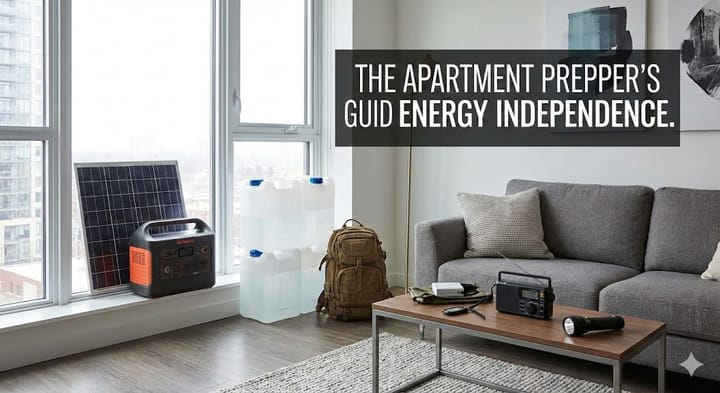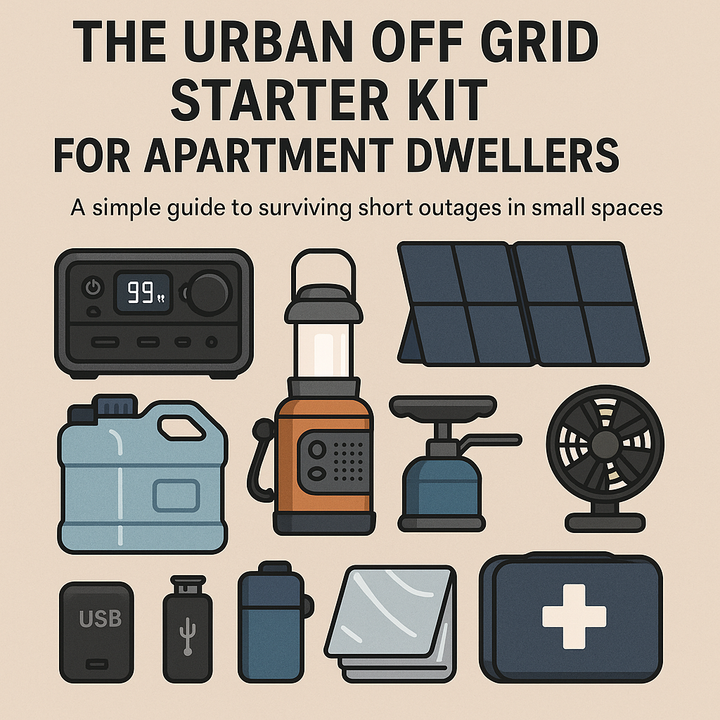Dumpster Diving in a Crisis: Safely Recovering Food and Goods After a Disaster

When a natural disaster or emergency strikes—whether it’s a hurricane, flood, or prolonged power outage,the grid goes down, supply chains stall, and access to food and essentials can become a struggle.
Dumpster diving, often seen as a niche activity, can be a lifeline in these situations, offering a way to recover food and goods from waste when resources are scarce.
But in a crisis, safety, caution, and resourcefulness are critical.
Here’s how to dumpster dive safely and ethically to support yourself and your community during an emergency.
ON SURVIVAL is a reader-supported publication. To receive new posts and support my work, consider becoming a free or paid subscriber.
Why Dumpster Dive in a Disaster?
When grocery stores, restaurants, and retailers shut down or lose power, they often discard perishable and non-perishable goods due to spoilage concerns, damaged packaging, or lack of storage.

In a grid-down scenario, these discarded items can be a critical resource:
- Access Essentials: Recover food, water, hygiene products, or tools when stores are closed or shelves are empty.
- Reduce Waste: Reclaiming usable items keeps them out of landfills and helps stretch limited resources.
- Support Community: Sharing finds with neighbors or local relief efforts can strengthen collective survival.
The EPA notes that 30-40% of food in the U.S. is wasted under normal circumstances, and post-disaster scenarios often amplify this as businesses clear out inventory. Dumpster diving can turn this waste into a vital supply line.
Is It Legal in a Crisis?
Legality can be murky during emergencies.
Normally, U.S. law (California v. Greenwood, 1988) considers trash in public areas fair game, but post-disaster situations can complicate things:
- Check Local Conditions: Curfews, martial law, or restricted zones may limit access to certain areas. Avoid diving in heavily patrolled or hazardous zones.
- Private Property Risks: Dumpsters on private property (like behind stores) may be off-limits without permission, especially if looting concerns are high.
- Be Discreet: Authorities and property owners may be on edge. Dive quietly, ideally during daylight to avoid suspicion, and steer clear of confrontations.
In a crisis, prioritize safety over legality, if it feels risky, move on.
Safety First
Diving in a DisasterDumpster diving in a grid-down emergency requires extra caution.
Infrastructure damage, lack of sanitation, and limited access to clean water can make the process riskier. Here’s how to stay safe:
Gear Up for Safety:
Gloves: Wear thick gloves to protect against sharp objects, contamination, or debris from disaster damage.
Flashlight/Headlamp: With no grid power, lighting is critical for night dives or exploring dark areas.
Sturdy Boots: Protect your feet from broken glass, nails, or flooded areas.
Backpack or Waterproof Bag: Use something durable to carry finds, ideally easy to clean or disposable.
Face Mask: Dust, mold, or airborne debris from disaster sites can pose health risks.
Choose Dumpsters Carefully:
Grocery Stores and Pharmacies: Look for non-perishable foods (canned goods, dry foods), bottled water, or hygiene items like soap and diapers.
Restaurants or Cafes: May have sealed or shelf-stable items discarded due to power loss.
Avoid Hazardous Areas: Skip dumpsters near collapsed buildings, flooded zones, or those containing medical waste, chemicals, or biohazards.
Inspect Finds Thoroughly:
Food Safety: Power outages accelerate spoilage. Check for intact packaging, no foul odors, and no signs of mold or damage. Canned goods, sealed snacks, and undamaged produce are often safe. Avoid anything that’s been submerged in floodwater unless sealed.
Non-Food Items: Look for batteries, blankets, tarps, or tools. Ensure they’re functional and free of contamination.
Water Safety: Prioritize sealed bottled water. If none is available, boil or purify any questionable water sources.
Stay Clean in a Crisis:
Use hand sanitizer or soap (if available) after diving to avoid contamination.
Clean food and goods with any available clean water or disinfectant wipes. For produce, a vinegar soak can help if water is scarce.
Store finds in a dry, secure place to prevent further contamination.
Know When to Walk Away:
Avoid dumpsters with signs of flooding, chemical spills, or pest infestations.
If a site feels unsafe (e.g., unstable structures, looters, or aggressive security), leave immediately.
Trust your instincts—if something looks or smells off, don’t risk it.
Ethical Diving in a Crisis
In an emergency, dumpster diving is about survival, but it’s also about community.
Here’s how to dive ethically:
- Take Only What You Need: Resources are scarce, and hoarding prevents others from accessing essentials.
- Share with Others: If you find surplus food, water, or supplies, distribute them to neighbors, shelters, or mutual aid groups.
- Leave No Mess: Scattered trash can attract pests or make areas unsafe. Keep dumpsters tidy to avoid drawing attention.
- Respect Workers and Authorities: Store employees or relief workers may be stressed. Be polite, avoid conflict, and thank those who allow access.
Tips for Success in a Disaster
Scout Strategically: Focus on stores or businesses likely to discard usable goods due to power loss or closure.
Check grocery stores, dollar stores, or warehouses.
Time It Right: Dive soon after a disaster, before items spoil or are cleared away.
Early mornings may offer less competition and safer conditions.
Team Up: A partner can help carry heavy items, watch for hazards, or provide safety in unstable areas.
Stay Informed: If internet access is available, check local networks for updates on store closures, relief efforts, or safe diving locations.
Improvise Tools: If you lack gear, use plastic bags as gloves or repurpose items like buckets for carrying finds.
The Bigger Picture
Dumpster diving during a disaster isn’t just about survival,it’s a way to reclaim resources, reduce strain on overburdened relief systems, and build resilience.
It highlights how much is needlessly discarded, even in times of scarcity, and empowers you to take action when systems fail.
Start small. Check a nearby grocery or pharmacy dumpster, bring a buddy, and prioritize safety.
Your finds could mean a meal for your family or a blanket for a neighbor.
Dumpster diving in an emergency is about more than personal gain, it’s about community survival.
Share your tips, experiences, or questions in the comments.
ON SURVIVAL is a reader-supported publication. To receive new posts and support my work, consider becoming a free or paid subscriber.





Comments ()